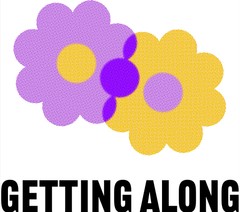Getting Along is a column about taking care of yourself, setting boundaries, and having difficult conversations, for people who struggle with all three.
Advertisement
But when someone is behaving in a way that is egregiously wrong or that really violates the social contract, it can actually feel harder to confront the behavior. There’s often a feeling of, This is so obviously out of line and this person doesn’t seem to notice or care… perhaps *I* am the one who is wrong?But you’re probably not wrong!!! (And as long as you’re sincerely thinking about the issue from all angles and attempting to act in good faith on behalf of everyone involved, you're OK to proceed.) Being a good friend doesn’t mean you have to listen to them grouse like this forever.If your friend is shouting through the bars of a jail cell of their own making, here’s what to do.When someone is acting like an ass, it’s easy to tell yourself that it’s not your place to say something. Like, Yeah we’re friends, but we’re not *best* friends. Or, Yeah we’re best friends, but I’m not their *partner*. If you really don’t want to have a hard conversation, you can find endless reasons why it’s not your responsibility to be The One Who Says Something.But consider the alternative: perhaps you should be The One. We live in a society, and we’re all responsible for gently telling people when they are acting obnoxious. Therapist Ryan Howes put it to me this way when I interviewed him for my book: “As a friend, it’s important to step in because people can be so unaware of what they’re doing. A big part of our job as friends or in any relationship is to hold a mirror up sometimes.”
Accept that yeah, you should probably say something.
Advertisement
Being your friend’s mirror isn’t particularly fun… but neither is being the pillow they are screaming into. No matter how you slice it, this situation isn’t going to be enjoyable for you, so you might as well try dealing with it directly—at least that option includes the possibility that things will actually get better.If the conversation is happening in person, you can say a lot through your tone and body language. When the person says something particularly off-base, don’t nod in agreement; instead, let yourself grimace, wince, or cringe. If they’re really on one, they might not notice (or will pretend not to)… but in my experience, this when they’ll probably begin to get the sense that you think they’re being kind of an asshole. (If they are ever going to get it at all.) They might even say, “Do you think I’m being an asshole?” Which brings us to…Instead of “Oh, totally”-ing your friend in the moment (while silently rolling your eyes, or thinking about how you’re going to talk shit about them to a third party later), just… say something! Keep your tone measured and fairly neutral; while your friend probably should feel a little bit embarrassed by their behavior, aggressively shaming them isn’t going to help. If they are feeling attacked and defensive, they aren’t going to be able to really internalize what you’re saying.Let's say your friend is venting non-stop about a third party, Tyler. Tyler is definitely in the right.
Let tone and body language do some of the talking.
Keep your judgment in check while telling them that you don’t agree.
Advertisement
Here’s what you could say to your friend:“I actually see Tyler’s point.”“Hm… I actually don’t think [thing your friend is saying/doing] is totally fair.”“If I can be honest, I actually think you should listen to what Tyler is saying.”“Hm, I can actually see where they are coming from on this.”“I actually don’t think what Tyler is [doing/saying] is that crazy.”“I think if I were in Tyler’s position, I’d probably be pretty upset too, to be honest.”In my experience, a calm response like this acts like a cooling balm on their heated spirit, and they’ll pause and ask you why you think that. And if they dismiss you entirely without hearing you out, well… that tells you a lot about your friend.Sometimes, it makes more sense to avoid the really grave “I’m not mad, I’m just disappointed” tone, and go for a response that’s both light and also blunt. Instead of trying to communicate “This is Serious,” you can aim for a breezier “Holy shit, your behavior is so bad, this isn’t actually that deep!” When someone’s POV is fundamentally not up for debate—because it’s racist, misogynist, actually a crime in some states, etc.—you don’t have to treat it as valid.So, that might sound something like:“Wait—what? That’s an incredibly [unprofessional/mean/weird/fucked up/out of line] thing to [say/do] to [your boss/your partner/your ex/the person who is presently upset about your friend’s repeated microaggressions]. You’re lucky they aren’t [firing you/dumping you/calling the cops on you].”
If the friend is doing something really egregious, lean into your negative reaction.
Advertisement
If you can’t be honest for some reason, at least absolve yourself of the need to be a good audience.
Let go of the need to convince your friend that they are in the wrong.
Advertisement
“I’ve told you how I feel about this, so I’m not sure what you want me to say here.”“I think you know how I feel about this, so can we please table this subject for the foreseeable future?”“Hey, I don’t think we’re ever going to see eye to eye on this, and I’m finding these conversations pretty draining. Can we change the subject?”It makes sense that you would want to vent to other people about your complaining friend—it feels good to be able to say what you’re really thinking to someone, and a third party will presumably either validate your frustration, or tell you that you’re off base.But venting about every conversation you have with the obnoxious friend causes a few problems: First, it can trick you into thinking you’re solving the problem, when you’re actually just spreading the negativity—your friend’s and now your own—around. You’re also doubling the amount of time you spend thinking about it; to paraphrase @dril, you’re giving yourself brain damage by pissing yourself off.Sure, it’s satisfying to say these things out loud to someone… so now imagine how great it would feel to say everything (in a more considerate form, of course!) to the person who actually needs to hear it.Finally, by complaining to your other friends non-stop, you become that which you hate—now you’re the one venting non-stop about a situation instead of acknowledging your own agency or doing something to fix it. Sure, you might think the third party you’re unleashing on is totally fine with this and perhaps even likes it… but that’s surely what the complainer is thinking about you, too.That doesn’t mean that you can’t ever talk with a third person about this stuff… but try to exhibit a little more self-awareness than the person you’re complaining about right now.Sign up for our newsletter to get the best of VICE delivered to your inbox daily.Rachel Miller is the author of The Art of Showing Up: How to Be There for Yourself and Your People, coming May 2020. Follow her on Twitter.

